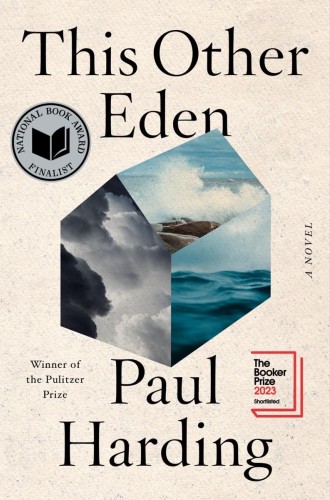An island in the storm
Paul Harding’s evocative novel begins with the 1815 hurricane off the New England coast.

This Other Eden
A Novel
Violent storms often mark turning points in epic narratives. King Lear staggers across a windswept heath, bemoaning the loss of his kingdom and his mind. Battered by a hurricane in the Florida Everglades, Zora Neale Hurston’s characters shelter in their flimsy shanties; “they seemed to be staring at the dark, but their eyes were watching God.” Storms pummel the Yorkshire moors when a spurned Heathcliff runs from the house of his beloved in Emily Brontë’s Wuthering Heights. At the apex of Wes Anderson’s Moonrise Kingdom (a film that derives its structure in part from Benjamin Britten’s opera Noye’s Fludde) a great storm wreaks destruction on a village.
A storm of biblical proportions ravages the New England coast in the opening pages of Paul Harding’s This Other Eden. Patience Honey, an immigrant from Ireland who had settled on an uninhabited Maine island two decades earlier with her African husband, runs outside just before the storm smashes her house into splinters, thinking to herself that “this was the Judgment and what was to be was to be; it was useless to try to outrun the outstretched arm of the Lord.” Benjamin and Patience sweep up their grandchildren in their arms and climb the tallest tree on the island. As the tree sways and nearly snaps in the gale, they watch the floodwaters destroy homes and farms and orchards and then at last subside. Some family members and neighbors who climb up after them are spared; others are swept away and drowned.
Like the great biblical flood, which causes both the near destruction and the renewal of the human family, the hurricane of 1815 decimates but does not destroy the mixed-race community on the island. Apple Island is “a granite pebble in the frigid Atlantic,” separated from the mainland by just 300 feet of tidal shallows—and by an unbridgeable gulf of racial prejudice and social isolation.




